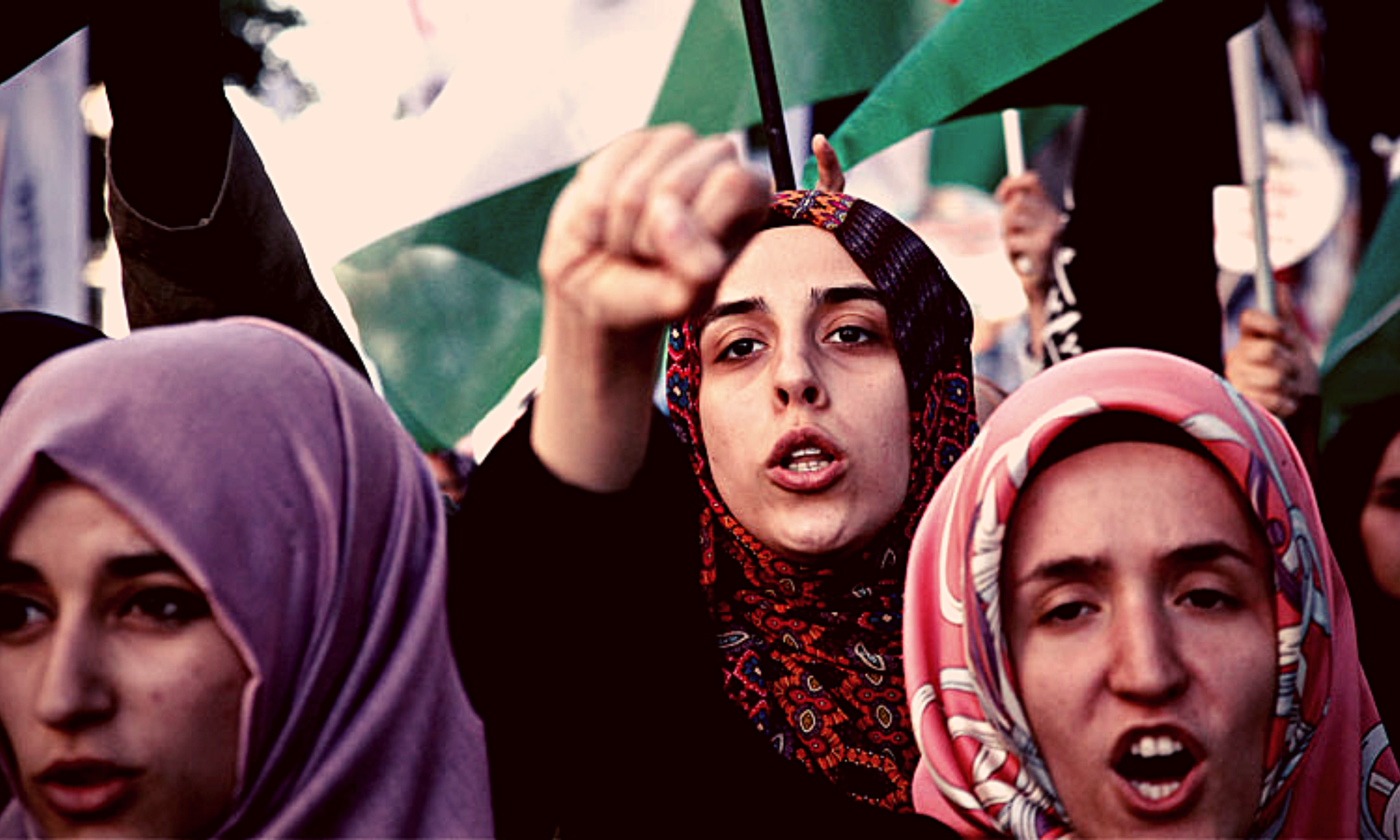
By: Amna Asad, MPAC Policy Intern
Palestinian women have faced widespread oppression from the Israeli government since 1948, but recently, this oppression has taken on atrocious forms. According to the United Nations Population Fund, “Over 690,000 menstruating women and girls struggle to access hygiene products and facilities” while pregnant women continue to face persisting challenges to their childrens’ health as well as their own. Women in Palestine are intentionally taking medication to stop their periods, have little to no access to menstrual products, and give birth under dire conditions with no anesthesia. Due to limited hospital space, women have few sterilized and safe spaces for giving birth.
In her article, “Talking Back to White Feminism: An Intersectional Review,” Sherri Liska describes white feminism as the Western concept that prioritizes the liberation of white middle-class women, while neglecting the voices of women of color around the globe.
The silence of white feminists’ voices during this period of extreme pain and suffering for Middle Eastern women in Palestine will not be forgotten.
The voices of white feminism continue to be absent when it comes to women of color. Maheen Haq discusses in her article “The War on Muslim Women’s Bodies: A Critique of Western Feminism” how white feminism undermines the agency of women of color. The narrative of white feminism attacks social dynamics and policies, actively denying women of color their rights to exist with agency. Haq presents cases where women ranging from youth to elderly women are harassed for wearing hijabs with the excuse of “empowerment” and “liberation.” The narrative of white feminism also further separates being a student, athlete, or mother from being a hijabi. To identify with any of these categories, one cannot be a hijabi, thus further eroding the agency of women of color. This further supports the belief that women of color are limited in their abilities to co-exist with white women due to their apparent inability to be more than just a “hijabi.” This works to further widen the rift between white women and women of color. The absence of support has been prevalent since the early women’s suffrage movements where the voices and representation of Black women were undervalued.
In a month dedicated to recognizing women and their struggles, there has been a notable lack of discussion regarding women not only in Palestine, but the entirety of the Middle East. White feminism tends to lump women into a single category, which proves to be detrimental to women in the Middle East. White feminism has proven to be devoid of context, erasing religion, culture, the effects of colonization, and various social and historical contexts. Instead, it highlights a Western perspective detracting from the unique struggles these women face beyond what the West considers as legitimate issues for women. Rather than focusing on the consequences of Western interference and interventions on women , white feminism is drawn towards targeting religion through claiming the issues women face in these regions stem from their religious ideologies. By placing the blame on religion, they avoid taking responsibility for the actual issues the West is creating in the Middle East.
Instead of addressing the devastating deaths, lack of menstrual products, poverty, and poor birthing conditions, white feminism hyper focuses on issues like forced veiling, marriage, and oppression. Rather than placing an emphasis on the colonial and western influence on the Middle East, white feminism cherry picks issues aforementioned in order to avoid Western accountability. A powerful piece titled “Don’t Liberate Me” by an anonymous author emphasized that “the only solidarity I am interested in seeing is the kind that throws a wrench in the war machine which occupies my homeland…otherwise, please spare me lectures on how oppressive you think my hijab is, or how I should follow your lead in fighting patriarchy, or how I should work for achieving democracy in my country.” This piece is crucial in understanding the issues that white feminism imposes on the women in the Middle East. These women do not need to be saved from their religion. The real weapon isn’t the fabric adorning their heads, but the destruction from the bombs plunged over their homes. By declaring their religion as the problem faced by the Middle East, white feminism belittles the suffering these women endure at the hands of the West making it crucial for us to reflect on the intentions and meaning of feminism.
Invest in MPAC’s work to improve public policies and perceptions. We’re changing how America views Islam and Muslims.